The explosive rise of Peaky Blinders : Inside the breakthrough show's final season plan
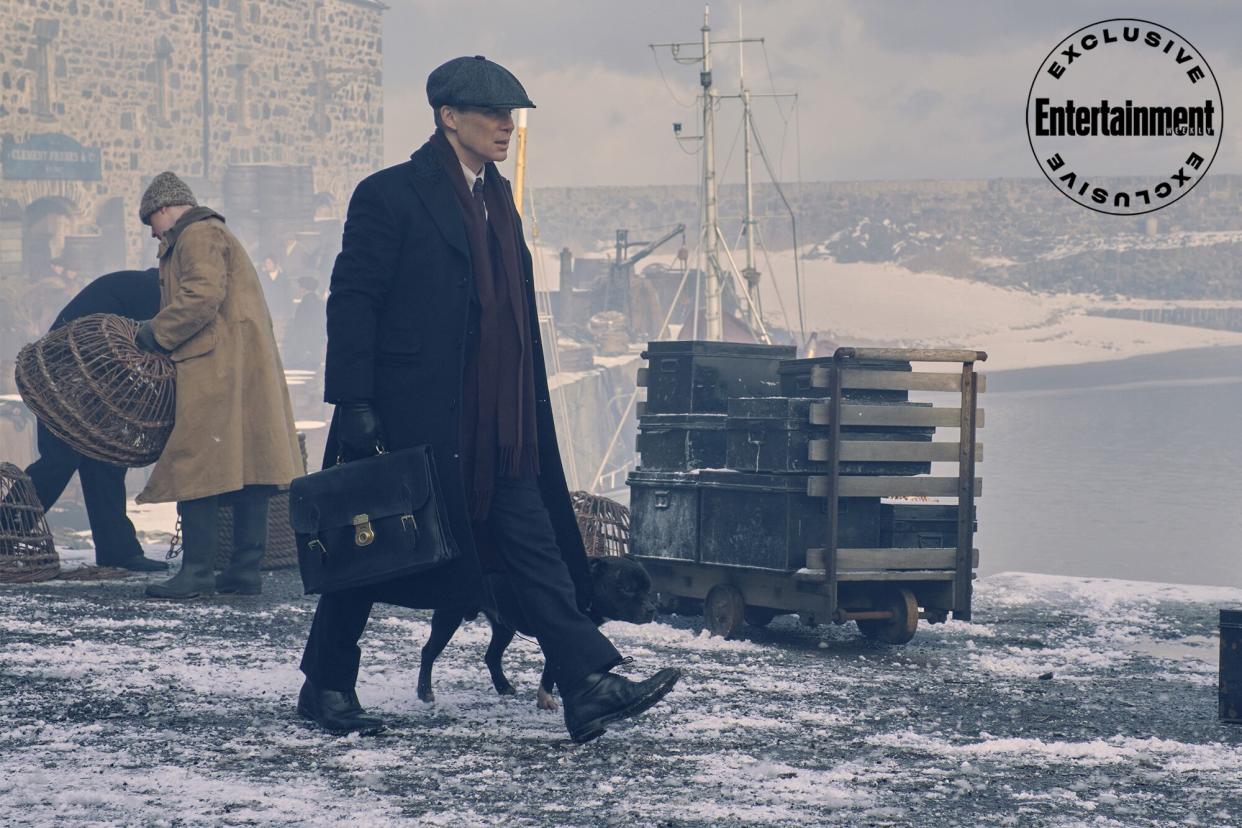
- Oops!Something went wrong.Please try again later.
- Oops!Something went wrong.Please try again later.
BBC
For five seasons, Thomas "Tommy" Shelby has led his family through war. Or rather, wars. During Peaky Blinders' run, Tommy has battled gangsters, cops, gypsies, and politicians. He's killed countless men. He's saved a few others.And he's done it all on an empty stomach.
"In the show, you never see him eat. The only thing that's passed his lips is a sprig of mint that he had with his kid," says Cillian Murphy, who stars as the criminally intelligent gangster with a penchant for three-piece suits. "He doesn't have f---ing time to eat, he's so on it!"
As the ambitious leader of the Peaky Blinders — a familial gang named after the razor blades sewn into the peaks of their newsboy caps and known for their iron-fisted methods — Tommy has no choice but to be on it. And there are no overdue leisurely lunches in sight: As the series heads into its sixth and final season, Tommy is recovering from his largest defeat yet, while also preparing to go up against fascist leader Oswald Mosley (Sam Claflin, mustached and malevolent) and a certain member of his own family. (More on that later.) Needless to say, Peaky isn't slowing down. "TV shows can plateau. They find their groove and they stick to it, but I'm very proud of the fact that each season has become richer and deeper," Murphy says. "With [season] 6, it's definitely the case. We were determined to make it brilliant."
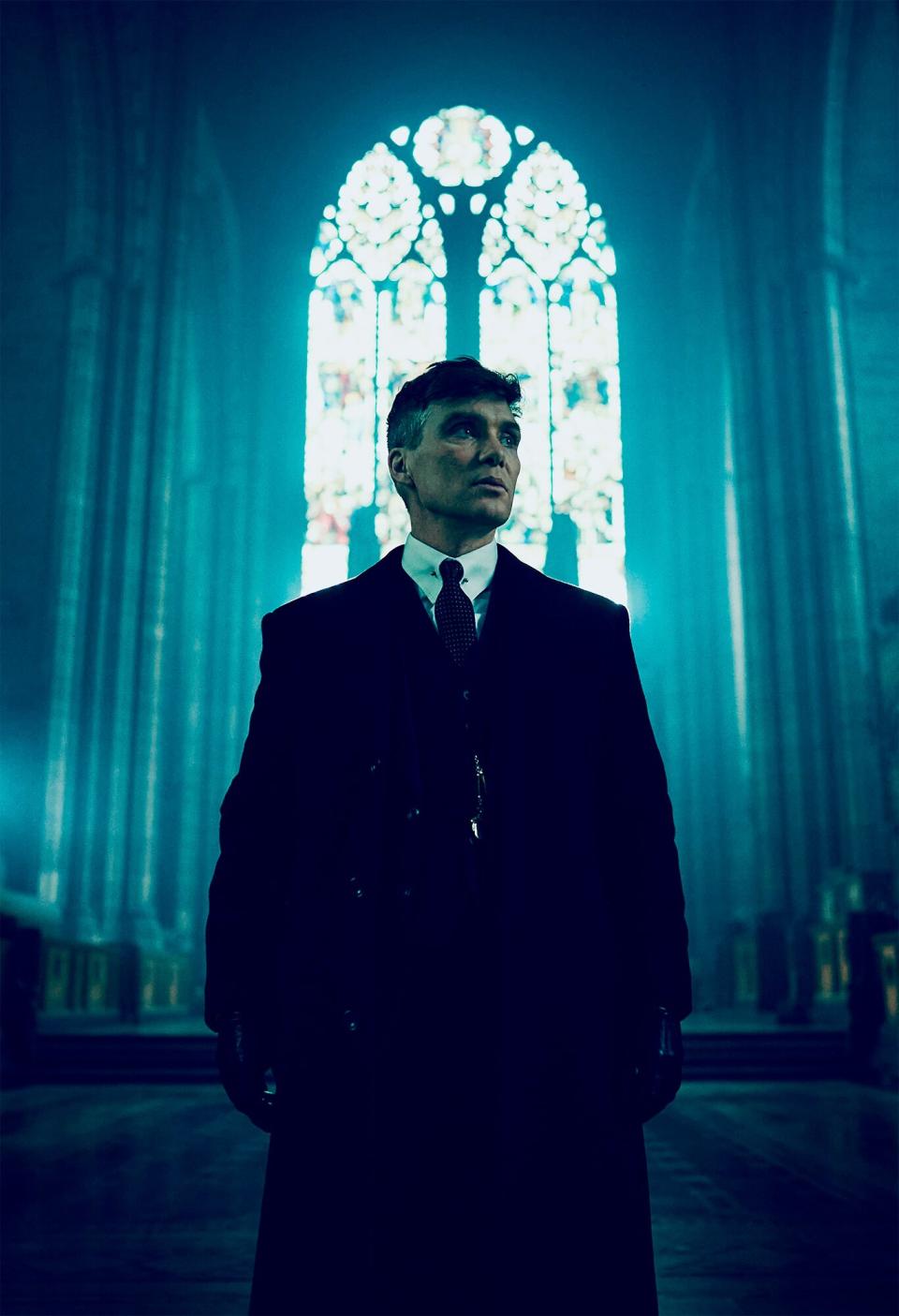
BBC Cillian Murphy as Tommy Shelby in 'Peaky Blinders.'
Brilliant is the bar. From its opening shot, the show established a unique visual language; no one loves a slow-motion, smoke-filled sequence like Peaky Blinders. It also delivered on complex characters, rich storytelling, and some of the best acting on television. "I think a lot of people expected it to be quite niche and be this kind of cult thing, but that's what's made it so popular. It was brazen with its originality and the confidence of its stylistic choices," says Sophie Rundle, who plays the lone female Shelby sibling, Ada. "You don't get a lot of that."
Style aside, the show's confidence comes from its substance, which is rooted in creator Steven Knight's familiarity with the source material. Growing up, Knight — who has written all 36 hours of the entire series — heard tales of how his mother spent her childhood as a bookie's runner, gathering illegal bets in the 1920s and '30s. Or how his great-uncles were illegal bookmakers, better known as the Peaky Blinders. Or how his father, a blacksmith, worked at scrap metal yards owned by gypsies. Knight combined those tales from his youth and then cranked the volume up to 11. "I always thought it would make a great drama, even though it's counterintuitive that you could do something like this in Birmingham, which is not a fashionable city by any means," Knight says. "So I thought, 'Let's keep the mythology, let's make it a Western, let's make it heightened and big and glamorous and dramatic.' And it seems to have struck a chord."
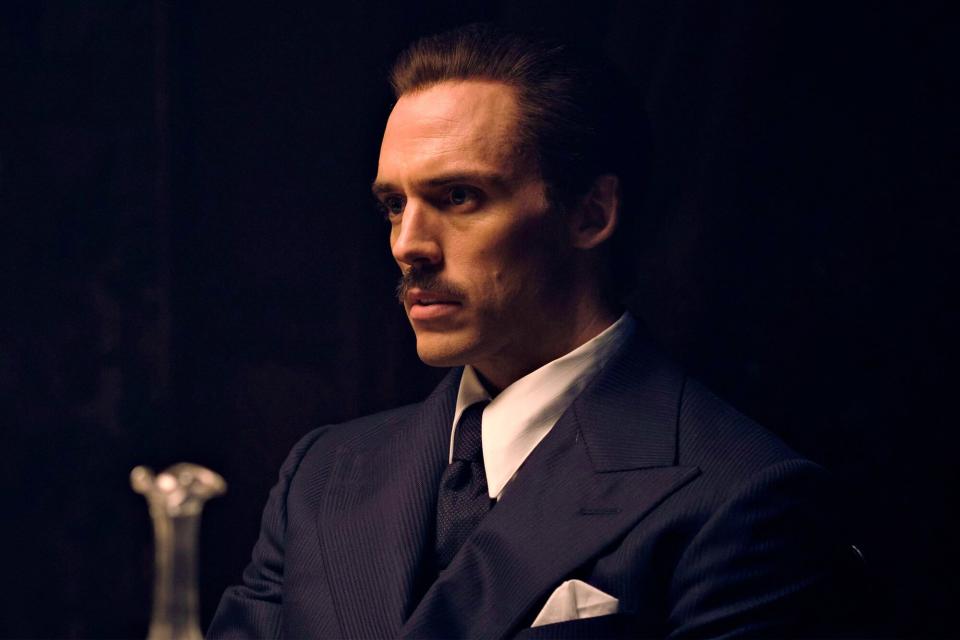
BBC Sam Claflin as Oswald Mosley on 'Peaky Blinders'
Knight rooted the family in Tommy. He's not the oldest brother — that title goes to the endearingly unstable Arthur (Paul Anderson) — but he is their leader, partly because he can command a room with nothing more than a terrifically slow drag of a cigarette. But mostly because he's too fearless not to be. "I always imagine that just before we started episode 1, Tommy Shelby came back from the trenches [of World War I] so shut down and traumatized by everything that happened that he put a gun to his head," Knight says. "Then he thought, 'I might as well just do everything. I'm dead already.'" Knight references a Francis Bacon quote that reads, "It's all so meaningless, we may as well be extraordinary." And that, Knight explains, is Tommy.
Tommy's ambition has taken the Shelby clan from backwater gamblers to manor-owning masterminds, their success mirroring that of the show. When Peaky premiered on BBC Two nine years ago, it had solid numbers, but wasn't a phenomenon… yet. ("The BBC doesn't spend much money on advertising," Murphy says.) Then, in its second season in 2014, the show also premiered on Netflix, back when Netflix "originals" weren't so original and the Netflix effect wasn't quite as strong. As the streaming platform worked on perfecting its algorithm, the drama's popularity grew from simple word of mouth. "It was a bit of a sleeper hit," says Rundle. "The fan base has really driven the success of it, which is quite an unusual thing." Netflix doesn't release viewing numbers, but Peaky's U.K. broadcast audience doubled in season 4, resulting in the show getting bumped up to flagship channel BBC One for season 5, which nearly doubled its viewers yet again. (Season 6 premieres on Netflix later this year, following its BBC One debut on Feb. 27.) Then there is the rest of the world, Knight points out: "You see fans from Russia and fans from Turkey. These are places where it's not even legally shown."
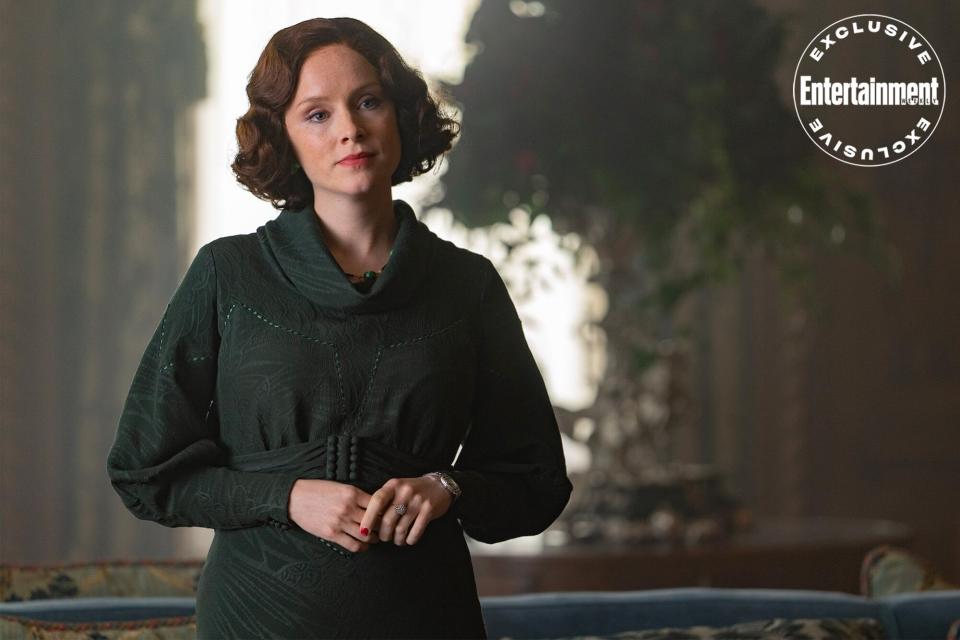
BBC Sophie Rundle as Ada Shelby in 'Peaky Blinders.'
The show's fandom also includes some big names like Stephen King, Ron Howard, and David Bowie, who, shortly before his 2016 death, granted the show permission to use his song "Lazarus" in a season 3 episode. And then there's the moment Knight knew they'd really made it: Snoop Dogg asked to meet him. "We had three hours in a hotel where he told me his life story and said that Peaky reminded him of how he got involved in gang culture," Knight recalls.
While the series has enjoyed an expansion befitting a pop culture force — there's a Peaky Blinders videogame, a Peaky Blinders beer, and a David Beckham-blessed official clothing line (razor blades not included) — at its core, it remains a damn good show. Just ask some of the non-famous fans working on Rundle's home during our interview. "The plumbers in my house were like, 'What's happening with Peaky?'" the actress recounts. "People want to know what Tommy Shelby is going to get up to."
Murphy knows, but he isn't going to tell. Sitting in his Dublin home in December, dressed in a navy button-down and jeans, his hair grown out, the actor is decidedly un-Tommy. The Birmingham accent is replaced with Murphy's natural Irish lilt. And the very same eyes used to subdue gangsters are warm and friendly, lighting up as he talks about what makes Tommy tick. "We've been tracking his inability to deal with the trauma that exists," Murphy says. "It will catch up with you, and that's what happened at the end of season 5…. And as the series progresses, the threats from all sides that began to happen are another engine for him to protect the family, to protect the gang, to protect the f---ing empire."
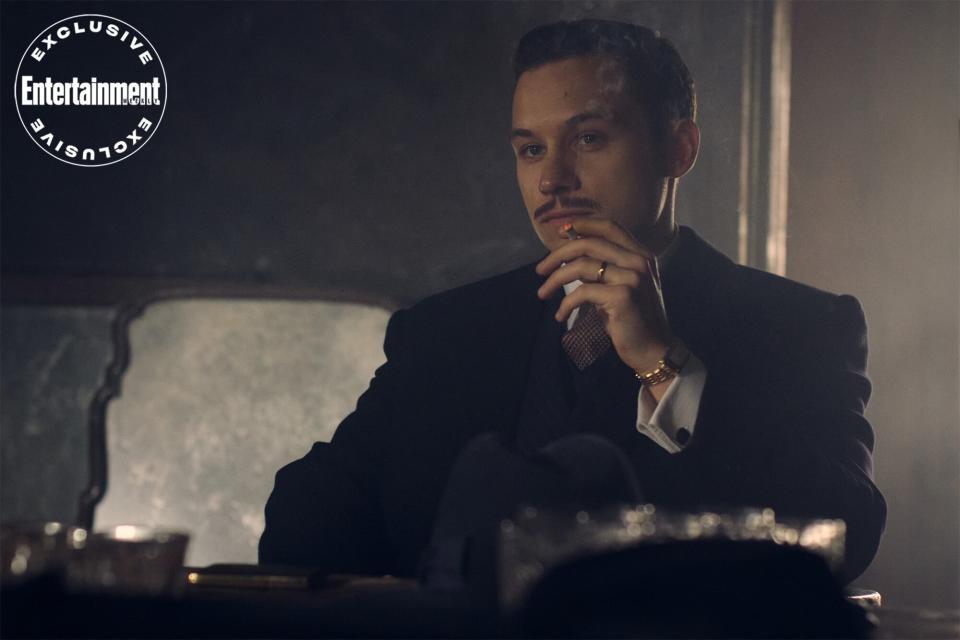
BBC Finn Cole as Michael Gray in 'Peaky Blinders.'
Protecting the f---ing empire is precisely what Tommy will have to do in season 6, which will include a time jump to the 1930s. That is, once he recovers from what happened at the end of season 5. Last time we saw him he was putting a gun to his own head, haunted by the consequences of things he had set in motion. "For the first time, people were ahead of him," says Murphy. That includes Mosley and a growing threat from his own cousin Michael Gray (Finn Cole), who goes from pawn and protégé to making a play for Tommy's crown. "They are butting heads," Cole says of Tommy and Michael in season 6. "But at the same time, they're family." Cole playfully warns off any attempts to predict what comes next for just about anyone in the final season: "Whatever ideas you might have, I can guarantee that you are wrong."
Murphy and Knight feel confident about how they're ending the series, but the process of saying goodbye wasn't quite what anyone expected. There was a pandemic to contend with and the loss of a beloved cast member. In April 2021, Helen McCrory — who was the steely heart of the family as the Shelby's aunt Elizabeth "Polly" Gray — died from cancer. And although they can't say how, both Knight and Murphy promise Polly will be a part of the show's end. "It was a difficult shoot because of the protocols. It was a sad shoot because of Helen not being there," Murphy says, adding, "We've always tried to make each season the best one. And I think we succeeded with this."
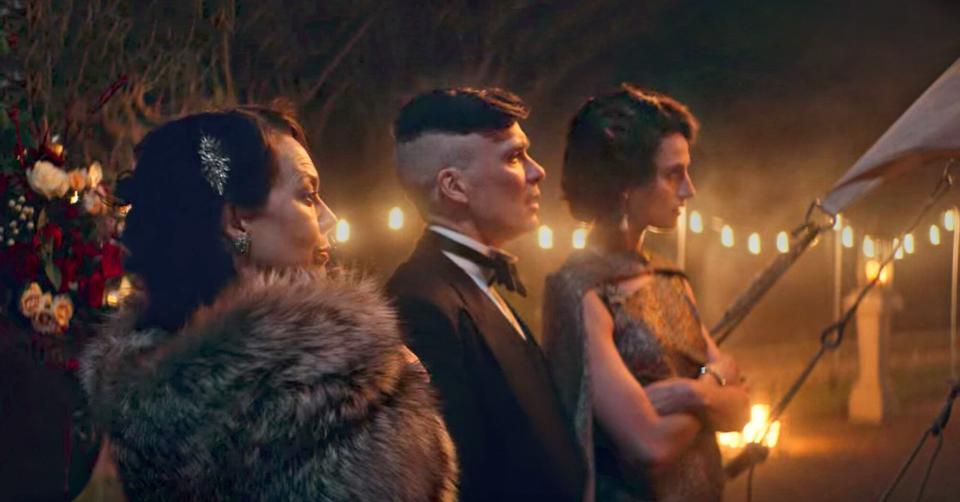
BBC 'Peaky Blinders' season 5.
So if the story is richer than ever and the fan base is bigger than ever, why is the show coming to an end? "I'm calling this the end of the beginning," Knight says, noting that his plan was for six seasons and a movie, the latter of which they're hoping to shoot in the next year and a half. And that's not all: "According to how the film structure falls into place, we'll set in motion some spin-offs that will be part of the same universe."
But for now, all eyes are on Tommy: As the world marches toward WWII, he faces the future of his empire and the Empire. Will he bounce back? Will he defeat Mosley? And will he do it all in a three-piece suit? (We probably know the answer to that one.) For a show ultimately about family and whether we can ever really escape where we come from, the ending might be simpler than all of that. "I'm always fascinated when people talk about what Tommy was like before the war, that he laughed a lot and worked with horses and was very romantic," Murphy says. "That is inside him somewhere, and I feel that Steve has wanted to defrost that. I would hope that there might be some redemption for him."
Peaky Blinders season 6 will premiere on BBC One on Sunday, Feb. 27, followed by Netflix at a later date.
A version of this story appears in the March issue of Entertainment Weekly, on newsstands now. Don't forget to subscribe for more exclusive interviews and photos, only in EW.
Related content:

